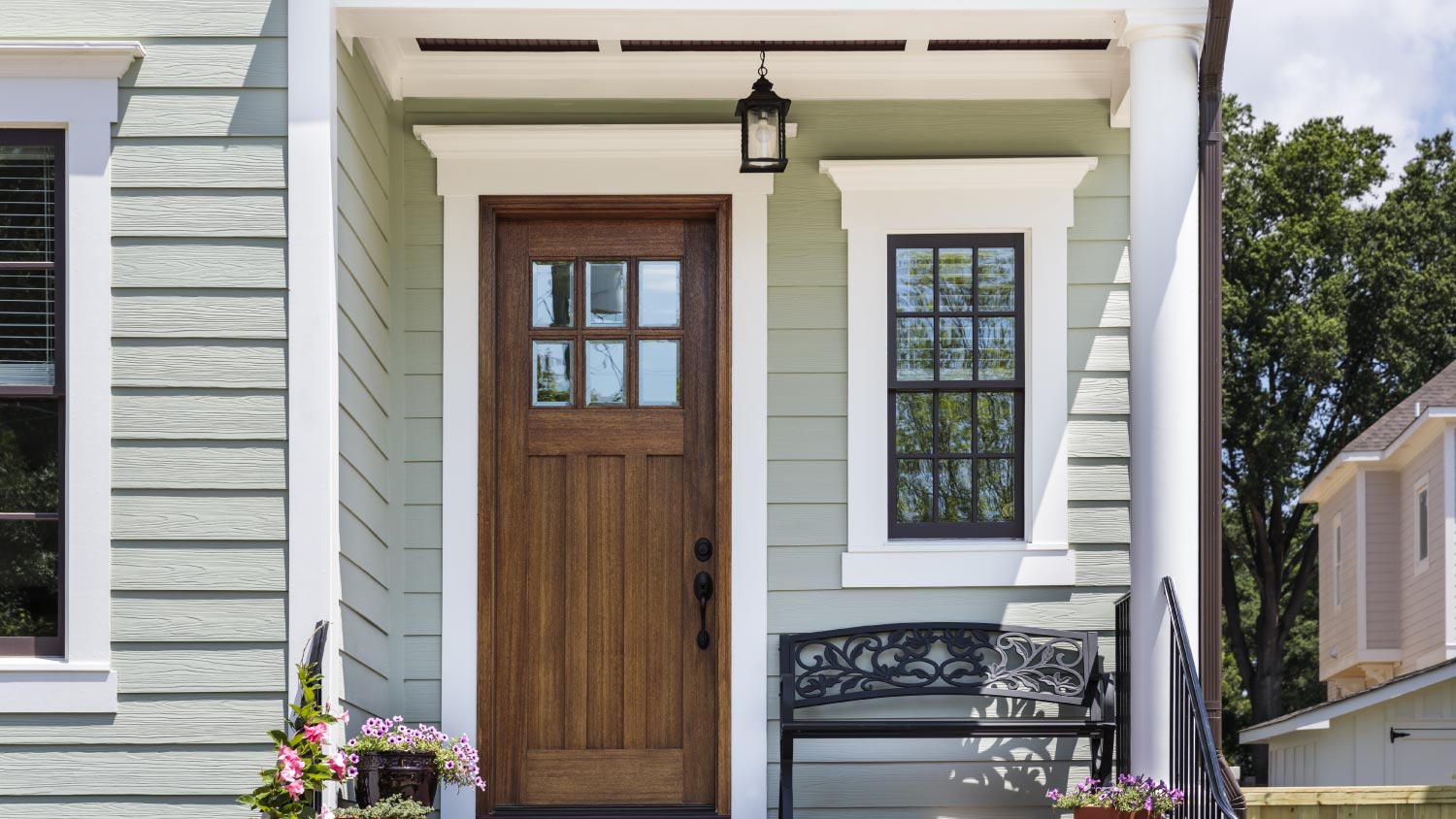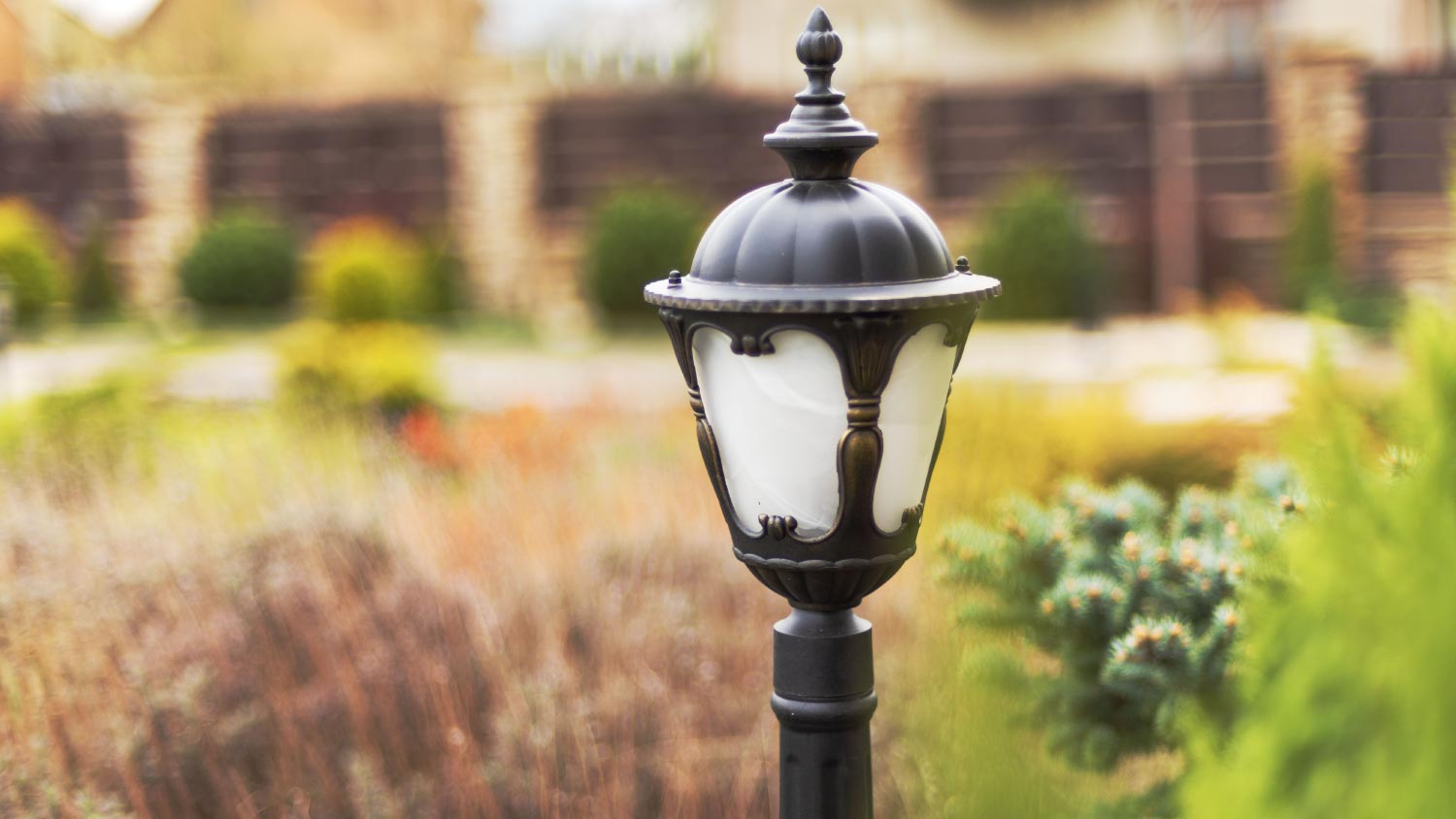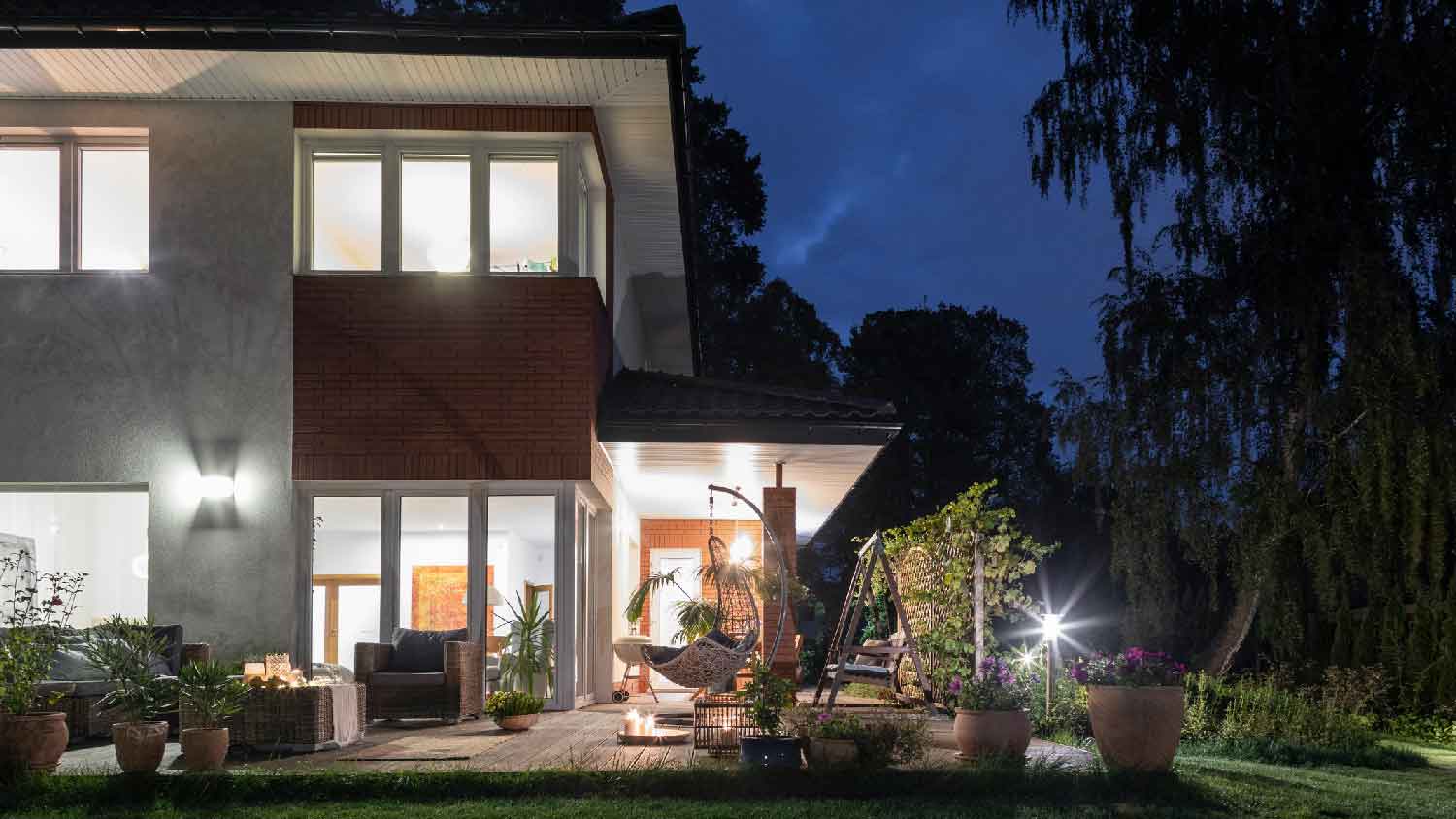
Discover the cost to install landscape lighting. Learn about average prices, key cost factors, and ways to save on your outdoor lighting project.
Choosing a new porch light can be hard; let us shed some light on the process


Your porch serves as a warm and welcoming space for whoever visits your home. But with all of the different types of porch lights on the market, it can be hard to know exactly which one is the best bet for your space. Not every home will look right with (or benefit from) a 100-watt spotlight by the front door. We hope you’ll find this guide to outdoor porch lights as illuminating as we do.
Spotlights are so named because they provide a narrow field of lighting that focuses on a certain, well, spot. The fixtures are usually pretty sparse and only appear as a base with one or two bulbs sticking out from it.
These types of lights are great if you’re looking for targeted light in a particular area—like maybe in that one patch of your backyard where your dog likes to visit at 2 a.m. And while these lights can be dressed up slightly (not all spotlights are purely utilitarian looking), they are typically known more for their function than their form.
Like spotlights, floodlights offer you more control over where you shine your porch light. The main difference between the two is that floodlights will allow you to illuminate a larger area.
So, if you have a less discerning four-legged friend (who perhaps likes to roam a bit during his late-night bathroom break), a floodlight may offer you a wider field of vision. However, this light will still keep things fairly contained, ensuring that you’re not lighting up your entire backyard when you take him out (or worse yet, lighting up your neighbor’s bedroom window).

If you’re looking for a light that will only illuminate your porch, you may want to consider an overhead light. These lights are normally mounted directly above your door and serve to help you see what’s near the entrance.
These types of lights come in several different styles. You can choose from flushmount, recessed, or even hanging chandelier styles, depending on your desired effect.
Wall-mounted lights are another option for adding illumination directly to your patio or porch. Unlike overhead lights, these are mounted on the wall, sometimes on either side of the door, above the door, or along with an extended patio. They serve to light up the small space around them and won’t do much to extend into your yard.
Just like overhead lighting, they come in many styles to fit your aesthetic. You can find everything from hanging lantern styles to more modern and industrial styles.
If you’re looking for lighting that adds a bit of ambiance to your porch, you might want to consider string lights. These temporary strands come in all different shapes and sizes (with LED being one of the most popular options).
You can string these adorable lights to add light where you want it most. They’re perfect for porches or patios where you’re expecting to hang out, but you don’t really need the glaring lights of a spotlight. Best of all, string lights are a great way to DIY your outdoor lights. If you already have an outlet, you won’t need an electrician's help to hang them.

While post lights aren’t technically porch lights (they’re usually mounted in the ground just beyond your porch and sometimes even down by your sidewalk), they are another way to light up the path that leads to your front door.
These lights are normally wired underground and controlled by a switch from inside the home or set on a timer. They don’t cast as much light as a streetlight, but much like a streetlight, they can illuminate what’s directly below them without being so bright that they become a nuisance for your neighbors. For people who live in a bug-prone climate and may want to avoid adding a light source near their door, post lights may be the optimal choice.
Some DIY mavens with plenty of experience may feel comfortable doing small-scale electric jobs. However, we generally don’t recommend that you install your own exterior lighting unless you have some know-how, so hiring a local electrician is a great way to get your new light fixtures hooked up.
You can expect to pay around $50 to $100 per hour for the cost to hire an electrician (not including materials, which can range widely in price). Don’t forget, as, with most jobs, you’ll want to get quotes from at least three pros before hiring an expert for the job.
From average costs to expert advice, get all the answers you need to get your job done.

Discover the cost to install landscape lighting. Learn about average prices, key cost factors, and ways to save on your outdoor lighting project.

How do you choose between the many types of outdoor lighting when planning for your space? Learn about each kind in this quick outdoor light guide.

If there's one thing your outdoor parties and barbecues need, it's a bit of light. These outdoor lighting questions will help you light up the night.

Get transparent landscape lighting repair cost info. Learn what impacts price, compare repair vs. replacement, and find ways to save on your project.